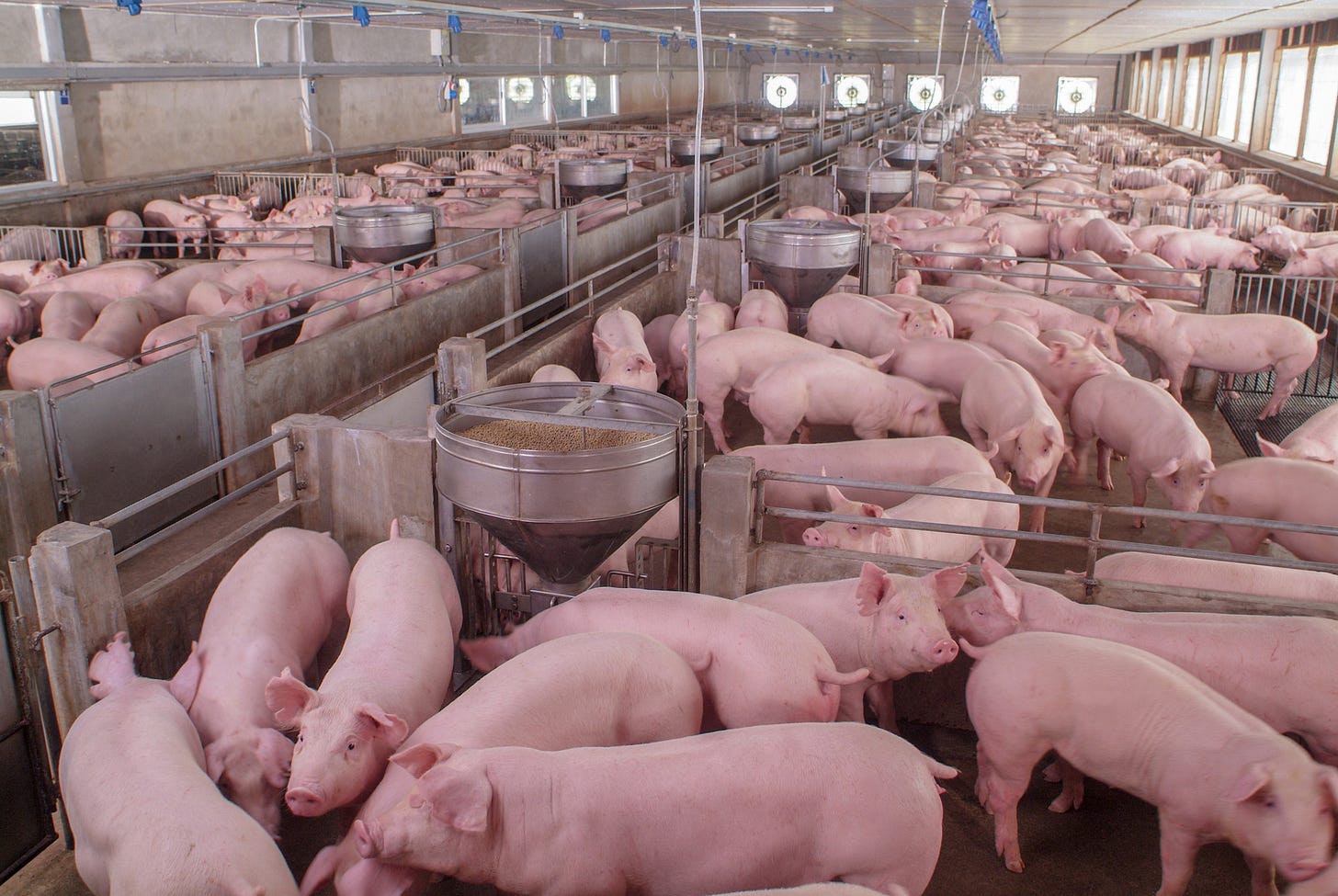Navigating the Ethical Landscape: Humanity's Impact on Animal Welfare
A Thoughtful Exploration of Humanity's Footprint on the Animal Kingdom and the Path to Ethical and Compassionate Coexistence
In the intricate web of our interconnected world, the treatment of animals stands as a crucial ethical concern. From the vast expanses of industrial farms to the remote corners of wildlife habitats, humanity's actions wield a profound influence on the well-being of our fellow inhabitants on Earth.
This article looks into some of the most pressing issues surrounding the treatment of animals and the ethical considerations that accompany these practices.
‘‘In navigating the ethical landscape, let compassion be our compass. Humanity's impact on animal welfare must be a harmonious journey, where respect for life guides our choices and shapes our collective legacy.’’
Factory Farming: The Hidden Toll on Animal Lives
The pervasive practice of factory farming has long been a subject of ethical scrutiny. The industrialization of agriculture brings with it overcrowded and unsanitary conditions, where animals endure stress and suffering. Confined to cramped spaces, animals are often denied access to natural behaviors, such as grazing, foraging, and social interaction. The consequences extend beyond the immediate ethical concerns, encompassing environmental degradation and the ethical dilemma of mass production for human consumption. According to the United Nations Food and Agriculture Organization (FAO), animal agriculture is responsible for approximately 14.5% of all greenhouse gas emissions, making it a significant contributor to climate change (FAO, 2023).
Animal Testing: Balancing Scientific Progress and Ethical Boundaries
Scientific advancements often come at the cost of animal well-being, as laboratories worldwide engage in animal testing for research and product development. An estimated 115 million animals are used in experiments each year globally ( Humane Society International, 2023). While some animal testing has led to significant breakthroughs in medical research, ethical concerns arise from the potential for pain, suffering, and distress inflicted on animals during experimentation. Striking a balance between scientific progress and ethical boundaries poses a challenge, with ongoing debates about the necessity and morality of subjecting animals to experimentation. Alternative methods, such as in vitro testing and computer modeling, are gaining traction, offering potential replacements or reductions in animal testing.
Poaching and Illegal Wildlife Trade: Threatening Biodiversity
The poaching and illegal trade of wildlife remain a significant threat to biodiversity. Driven by profit, poachers relentlessly pursue endangered species for their body parts, fur, and exotic pets. The illicit trade in wildlife disrupts ecosystems, jeopardizing the delicate balance that sustains life on our planet. According to the International Union for Conservation of Nature (IUCN), over 38,000 species are threatened with extinction, with poaching and illegal wildlife trade identified as major threats (IUCN, 2023). Conservation efforts are crucial to combating this illicit industry and preserving the richness of Earth's flora and fauna. Stricter enforcement of wildlife laws, increased public awareness, and support for local communities are essential steps in combating poaching and protecting endangered species.
Inhumane Slaughter Practices: A Moral Quandary
Slaughterhouses, where animals meet their end for human consumption, have faced criticism for inhumane practices. Ethical concerns arise over the treatment of animals during the slaughter process, including overcrowding, rough handling, and inhumane methods of stunning and killing. The use of slaughterhouses has been linked to animal stress, fear, and pain (Grandin, 2018). Promoting more humane and compassionate alternatives is crucial to addressing these concerns. Research and development into more humane slaughter techniques, such as controlled-atmosphere stunning and precision killing methods, offer potential solutions.
Animal Entertainment: The High Price of Amusement
The use of animals for entertainment, whether in circuses, zoos, or rodeos, raises ethical questions about the well-being of these sentient beings. While these activities may provide amusement for human audiences, they often come at the expense of animal welfare. Animals in captivity may experience stress, boredom, and unnatural environments, which can lead to behavioral problems and physical ailments. The ethical debate centers on the balance between human entertainment and the natural needs and behaviors of animals. Supporting alternative forms of entertainment that do not rely on the exploitation of animals, such as wildlife documentaries and animal-free circuses, can help promote a more humane approach to animal entertainment.
Conclusion
As custodians of the planet, humanity bears the responsibility of ensuring the ethical treatment of animals. The issues discussed here represent just a fraction of the complex web of interactions between humans and the animal kingdom. To forge a more compassionate and sustainable future, it is imperative to consider the ethical implications of our actions, advocate for legal reforms, and cultivate a collective consciousness that respects the intrinsic value of all living beings. Only through such concerted efforts can we hope to create a world where humanity's progress aligns harmoniously with the welfare of our fellow Earthlings.
References
FAO. (2023). Livestock and climate change: Mitigation and adaptation. Rome: Food and Agriculture Organization of the United Nations.
Grandin, T. (2018). Animals in translation: The thought processes of animals and what they mean to us. New York: Scribner.
Humane Society International. (2023). Animals in science
Additional Resources
Call to Action
Educate yourself and others about the ethical issues surrounding animal welfare.
Support organizations working to protect animals and promote their well-being.
Make conscious choices about your diet and lifestyle that minimize harm to animals.
Advocate for stricter regulations and legislation to ensure the ethical treatment of animals.
Together, we can create a brighter future for animals and a more compassionate world for all.


